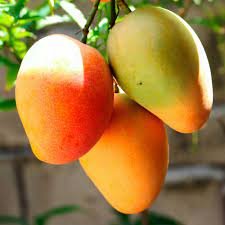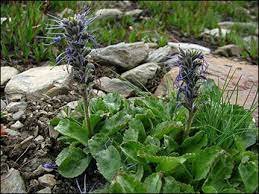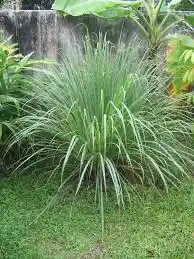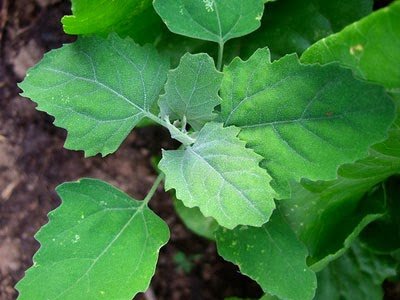What is Bio Enriched Organic Manure?
Bio Enriched Organic Manure (BEOM) is an advanced form of organic manure that is fortified with beneficial microorganisms and nutrients. It combines the benefits of traditional organic manure with the enhanced capabilities of microbial inoculants, which help in better nutrient availability and soil health improvement.
Types of Bio Enriched Organic Manure
- Microbial Enriched Compost:
- Organic compost fortified with beneficial microorganisms such as nitrogen-fixing bacteria, phosphorus-solubilizing bacteria, and potassium-mobilizing bacteria.
- Enriched Vermicompost:
- Vermicompost enhanced with microbial cultures and additional nutrients to boost its nutrient profile and microbial diversity.
- Fortified Farmyard Manure:
- Traditional animal manure enriched with microbial inoculants and sometimes additional organic amendments to improve its effectiveness.
Characteristics of Bio Enriched Organic Manure
- Appearance: Dark brown to black, granular or powdery texture.
- Odor: Earthy smell, indicating proper decomposition and microbial activity.
- Moisture Content: Generally around 30-40%, aiding in easy application and nutrient release.
- pH: Neutral to slightly alkaline (6.5 to 7.5), suitable for most crops.
- Organic Matter: High organic matter content, improving soil structure and fertility.
- Microbial Activity: Rich in beneficial microorganisms, which enhance nutrient availability and soil health.
Nutrient Value per 1 kg
The nutrient content of Bio Enriched Organic Manure can vary depending on the base materials and enrichment process. On average, the nutrient values per 1 kg of BEOM are:
- Nitrogen (N): 1.5% – 2.5%
- Phosphorus (P2O5): 1.0% – 2.0%
- Potassium (K2O): 1.5% – 2.5%
- Calcium (Ca): 2.0% – 3.5%
- Magnesium (Mg): 0.5% – 1.0%
- Micronutrients: Trace amounts of essential micronutrients such as iron (Fe), manganese (Mn), zinc (Zn), and copper (Cu).
Relevance and Importance
- Enhanced Nutrient Availability: Fortified with beneficial microorganisms that solubilize phosphorus, fix atmospheric nitrogen, and mobilize potassium, making these nutrients more available to plants.
- Soil Health Improvement: The organic matter improves soil structure, water retention, and microbial activity, promoting healthier soils.
- Sustainable Agriculture: Reduces the need for chemical fertilizers, promoting sustainable and organic farming practices.
- Environmental Protection: Minimizes nutrient runoff and leaching, reducing the risk of water pollution and eutrophication.
- Cost-Effectiveness: Provides a cost-effective alternative to synthetic fertilizers, especially when produced on-farm.
Use and Benefits
- Improved Soil Fertility: Enriches the soil with organic matter and essential nutrients, enhancing soil fertility and productivity.
- Enhanced Plant Growth: Promotes vigorous plant growth by improving nutrient availability, soil structure, and microbial activity.
- Disease Suppression: Contains beneficial microorganisms that can suppress soil-borne diseases and pests, reducing the need for chemical pesticides.
- Water Retention: Improves soil moisture retention, reducing the need for frequent irrigation and increasing drought resistance.
- Sustainable Agriculture: Supports sustainable farming practices by reducing reliance on synthetic fertilizers and promoting organic farming.
Crops Benefiting from Bio Enriched Organic Manure
Bio Enriched Organic Manure can be used for a wide variety of crops, including:
- Vegetables: Tomatoes, potatoes, carrots, cucumbers, peppers, lettuce.
- Application Stage: Before planting, mix BEOM into the soil to improve fertility. Apply as a top dressing during the growing season to boost nutrient availability.
- Fruits: Apples, grapes, strawberries, citrus fruits.
- Application Stage: Apply BEOM in the planting hole during planting and as a mulch around the base of the plants during the growing season.
- Cereals: Wheat, rice, maize, barley, oats.
- Application Stage: Incorporate BEOM into the soil before sowing seeds to enhance soil fertility and structure.
- Legumes: Soybeans, peas, lentils, chickpeas, beans.
- Application Stage: Mix BEOM into the soil before planting and use as a top dressing to maintain nutrient levels during the growing season.
- Root Crops: Radishes, beets, turnips, carrots.
- Application Stage: Add BEOM to the planting beds before sowing seeds to improve soil structure and nutrient content.
- Leafy Greens: Spinach, kale, cabbage, lettuce.
- Application Stage: Apply BEOM to the soil before planting and as a top dressing during the growing season to provide a steady nutrient supply.
Benefits at Different Crop Stages
- Germination and Early Growth: Enhanced root development and early establishment due to improved nutrient availability and microbial activity.
- Vegetative Stage: Improved plant vigor and growth, leading to robust plant development and increased resistance to stress.
- Reproductive Stage: Better flowering and fruit set, resulting in higher yields and improved quality of the produce.
Conclusion
Bio Enriched Organic Manure (BEOM) is a valuable resource for sustainable agriculture, offering numerous benefits such as enhanced soil fertility, improved plant growth, and reduced reliance on chemical fertilizers. By combining organic manure with beneficial microorganisms, BEOM provides a balanced supply of nutrients and supports healthy soil ecosystems. Integrating BEOM into crop management practices can lead to healthier plants, improved soil health, and a more sustainable agricultural system.









